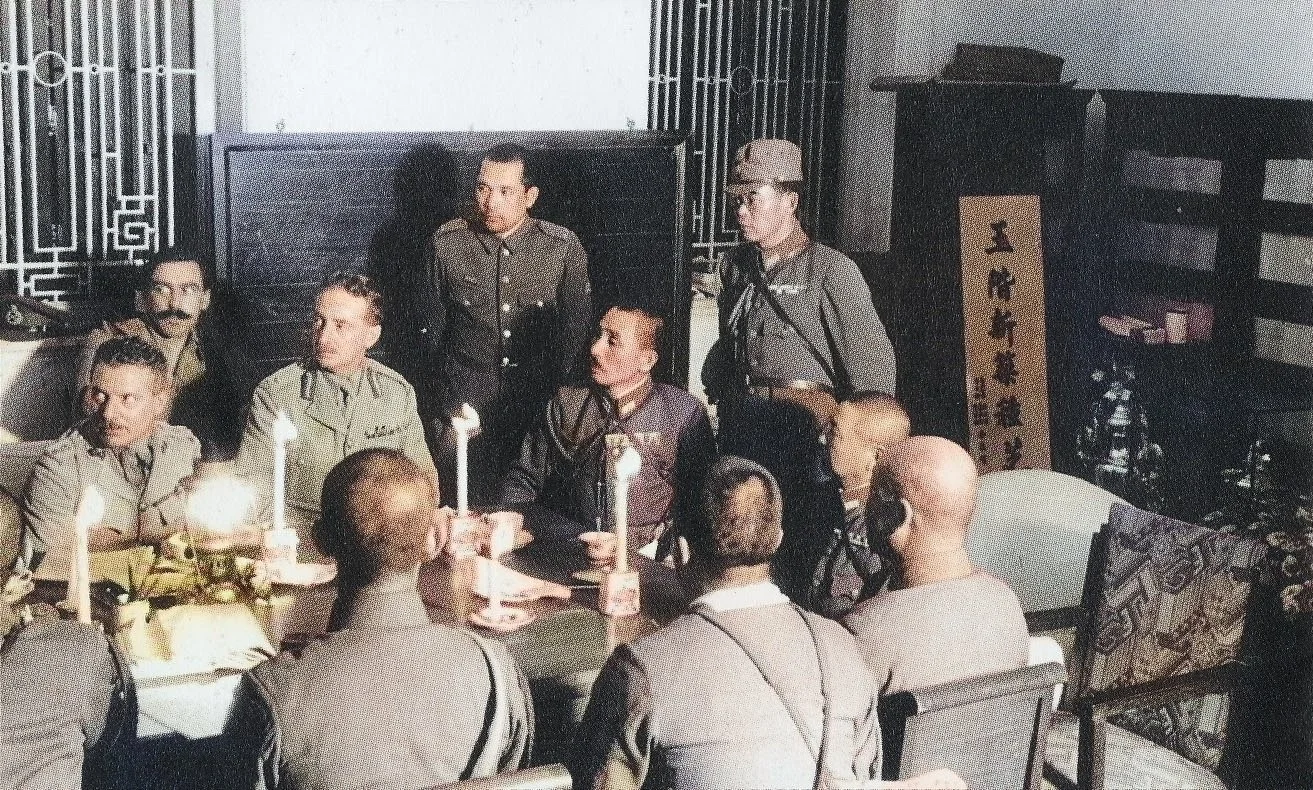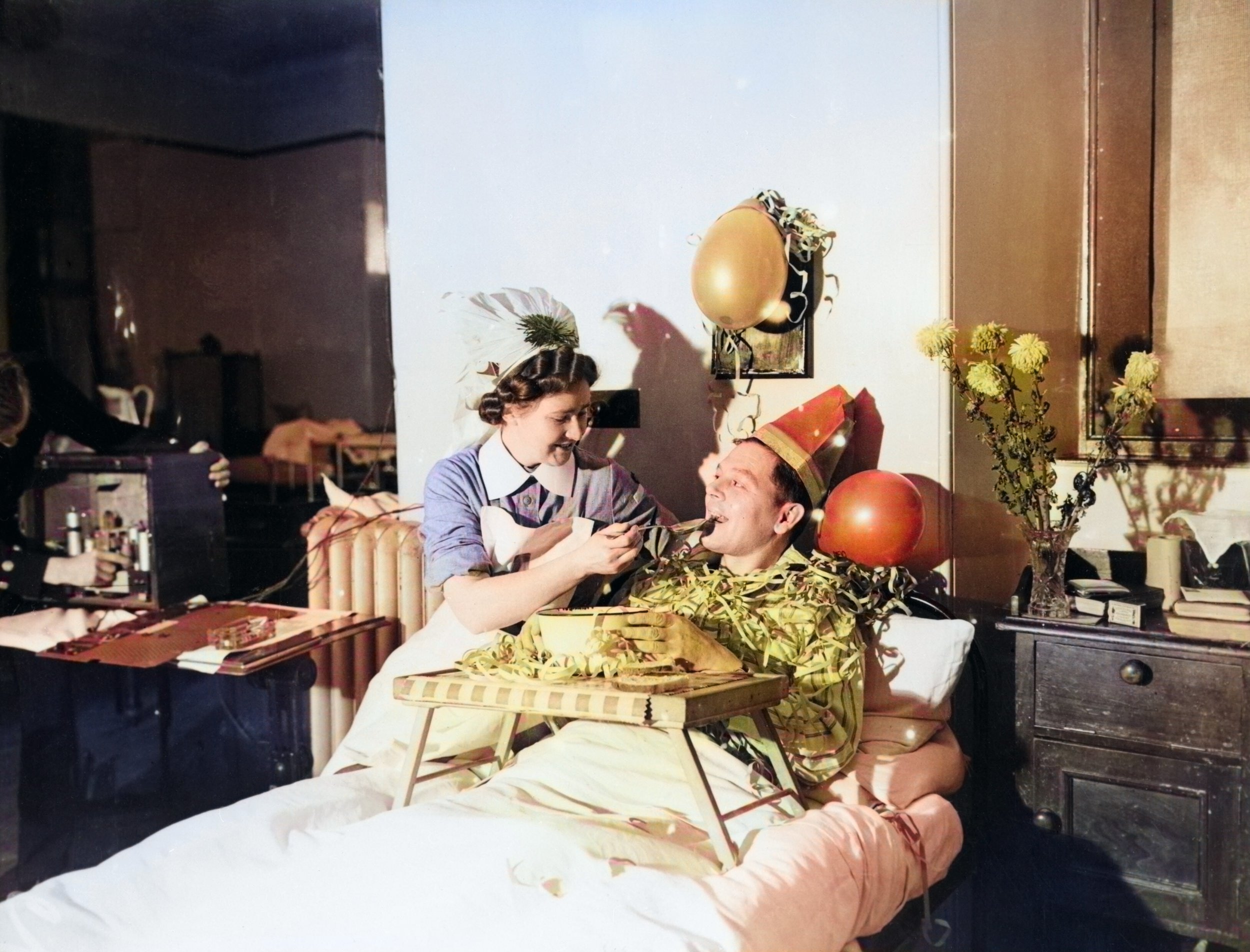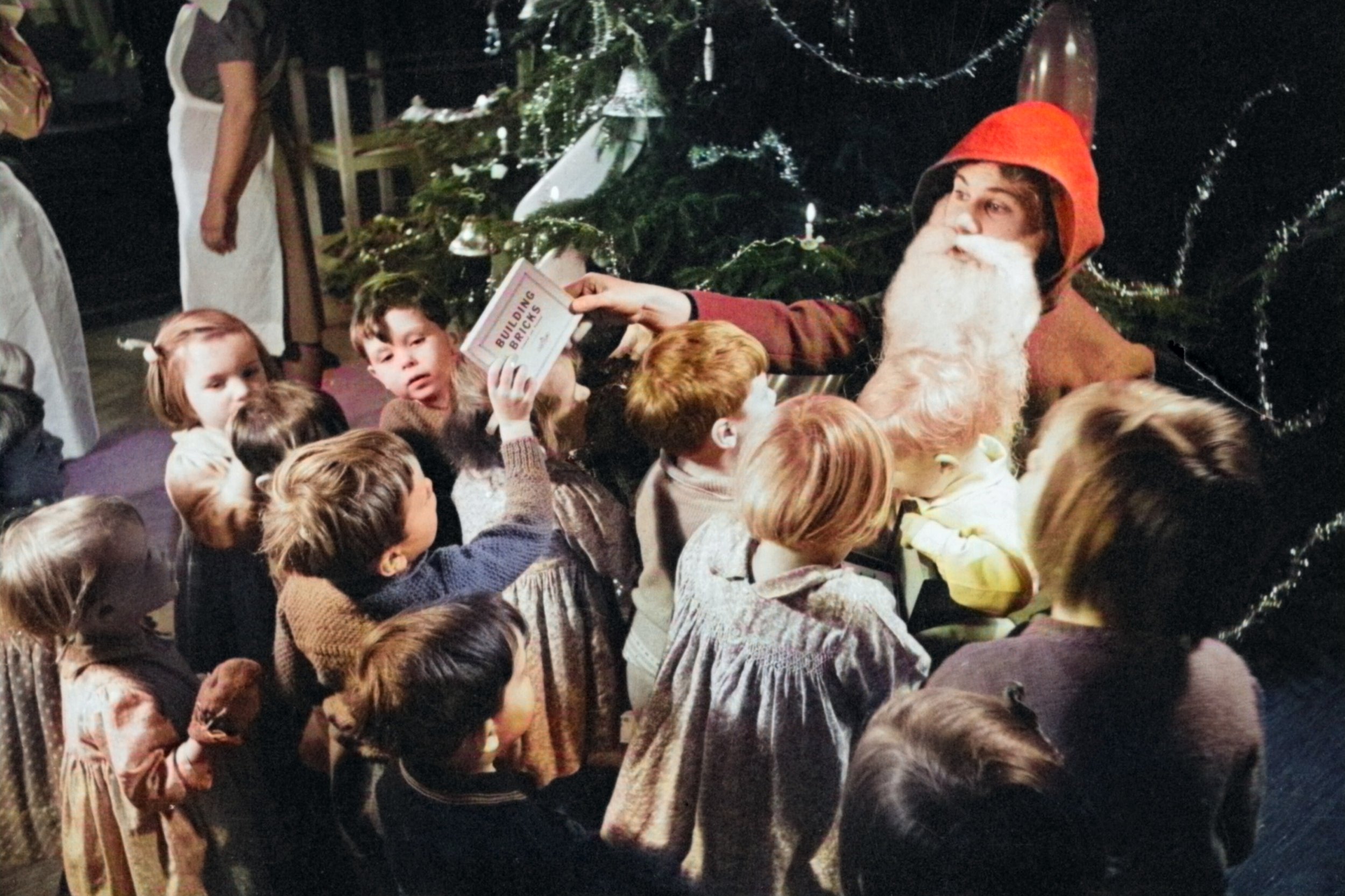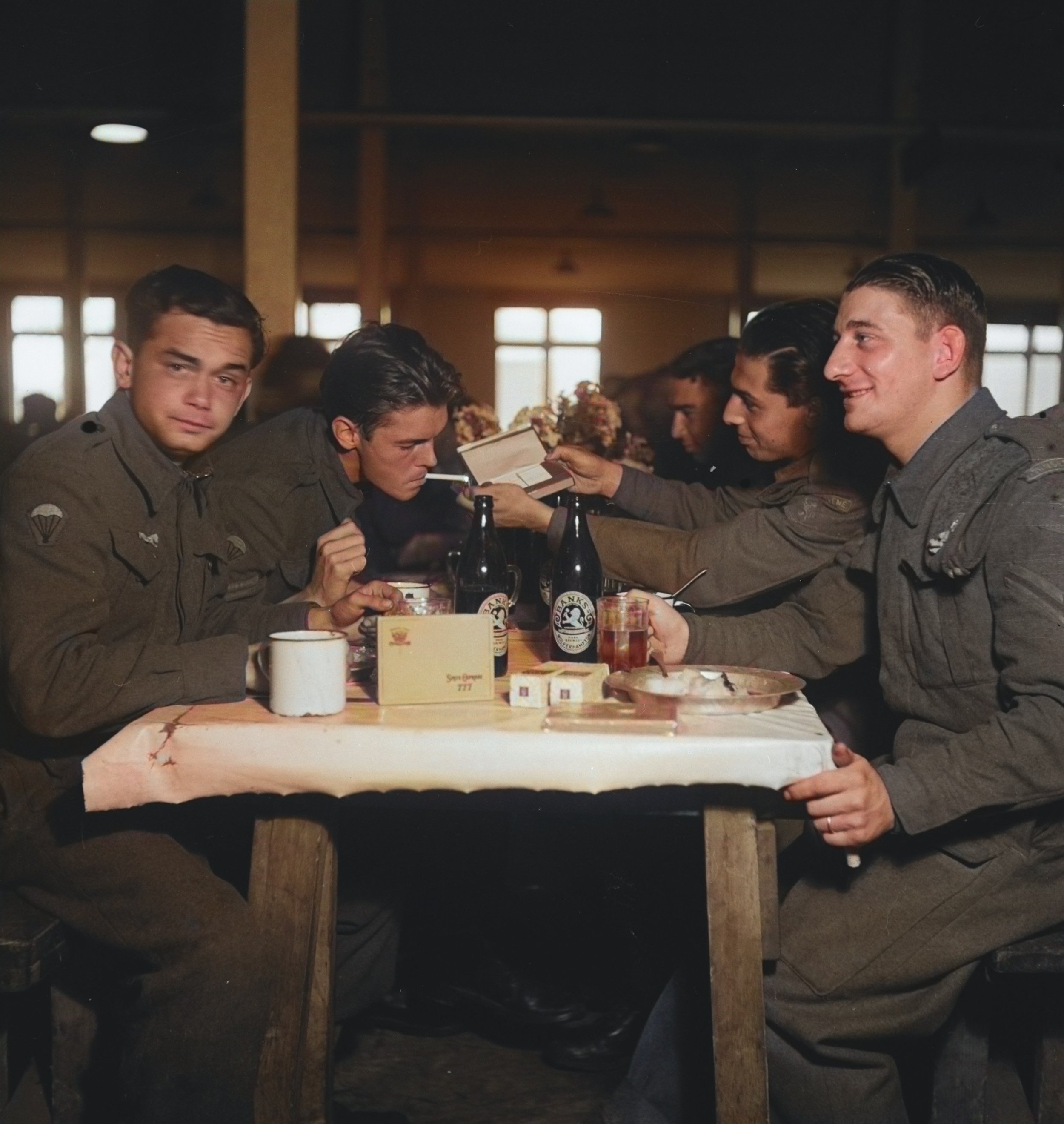Christmas 1941
1941 had been a year of escalation. Now both the war extended across the vastness of Russia as well as around the Pacific. With the war less than a month old in the latter region, a feeling of uncertainty reigned.
Japanese tanks advance on Manila
Two more major powers were not at war, and as Christmas approached their conflicts were not even a month old. The destruction of the US Pacific Fleet at Pearl Harbor had heralded the opening of the Pacific War, and the Japanese had followed up on their victory there with attacks across the region, strike the British in Malaya and Burma, the Australians in their homeland, and the Americans on islands across the Pacific.
In the embattled Philippines, the forces of the Imperial Japanese 14th Army was bearing down on the capital city of Manila, as the American defenders retreated to the Bataan Peninsula. The streets of the “Pearl of the Orient” were jammed with US soldiers moving northward as signs were posted announcing the declaration of the capital as an open city. Bridges in the north were blown to slow the Japanese advance, and as the soldiers dwindled order began to collapse in the city as the local Constabulary found itself overwhelmed by the spreading looting and panic. Many more spent the night in backyard bomb shelters, with the children wondering if Santa Claus would be able to get past the Japanese planes over the island.
Just to the north, the cavalrymen of General Jonathan Wainwright were engaged in a rearguard battle with the Japanese along the Agno River in the pre-dawn hours. As more men fell throughout Christmas Day, one of Wainwright’s men, Lt. Henry Lee of the 31st Infantry Regiment, penned a poem about the loss of his many friends and comrades that day:
“The waiting hearts to whom his heart belonged,
Know that he died this Christmas Day,
’In action’ the larconic message ran,
And ‘In the Philippines.’ They knew no more.”
British Governor General Mark Young and garrison commander General Christopher Maltby surrender Hong Kong to the Japanese on Christmas Day
Across the sea, the doom that loomed over the Americans on Luzon had already come for the British defenders of Hong Kong. The day prior the British defensive lines around the city center had been broken, and the Governor General, Mark Young, had concluded that there was no option left but capitulation. He placed the five Royal Navy torpedo boats left in the area under the command of Chinese Rear Admiral Chan Chak, authorizing Chak’s planned escape by sea to the north, linking up with friendly guerillas on the coast to make their way back to Free China.
The Admiral and his party were attacked en-route to the torpedo boats, and the Admiral was wounded in the hand and lost his artificial left leg, swimming with only one arm and leg to the waiting boats. Upon arrival the boats sped for their destination, and after days of walking through Japanese-occupied territory they would eventually reach safety.
Back in the city the remaining British defenders met with General Takashi Sakai of the Imperial Japanese Army in the Peninsula Hotel and formally surrendered the city. Isolated pockets would resist for several days, but the Battle of Hong Kong was essentially over.
German soldiers trudge through the snow near Moscow
Russian International News Agency
Far from the heat of the tropical settings of the Far East, the German Wehrmacht was being pushed back after the failure of their drive on the Soviet capital city of Moscow, through deep snowdrifts and frigid temperatures. As temperatures dropped to as low as -44 Fahrenheit, the vaunted panzers had been literally frozen, and the better prepared Red Army was driving the Germans back across the Moscow Front.
Having exhausted their forces, the Germans had halted at the beginning of the month, and were subjected to Soviet counterattacks starting on 5 December. On Christmas eve the Germans withdrew behind the frozen Istya River, as the Red Army took Borodino and Kaluga over the coming days.
German soldiers gather around a tree in a cold Eastern Front dugout
Wikimedia
Elsewhere on the Eastern Front the lines were mostly static, as the soldiers on both sides attempted to weather the brutal winter. The civilians fared little better, especially those trapped in the besieged and starving city of Leningrad. In one notable change in the USSR, however, for the first time since the end of the Civil War, churches were able to perform religious services without fear of persecution. Stalin, seeing the danger posed as the Germans allowed the persecuted Christians of the western USSR to open practice again, did the same to eliminate the possibility of this fermenting rebellion, and as a result the Russian Orthodox Church was able once again to operate unfettered.
CHRISTMAS - ARMY STYLE 1941. A rifle rack gains new utility as Pvts. Kotula and Queen hang their socks on rifles in the rack which is directly in the center of the squad room. "Santa will have to stumble into this, so he can't miss our socks. Camp Lee, Virginia, Quartermaster Replacement Center. December 1941.
US Army Center for Military History - Original Caption
At home in the United States the nation was still in shock after the attack on Pearl Harbor. Air Raid Wardens of the Office of Civilian Defense patrolled the streets of coastal cities, enforcing blackout precautions as Federal orders came down to extinguish Christmas tree lights, with wardens even empowered to enter homes to do so if needed. By now over a million young men had either volunteered or been drafted, leaving many homes feeling somewhat empty as the holiday approached. At their barracks, the men in uniform did their best, with Santa Claus appearing in a jeep at some posts and men hanging their stockings on rifle racks.
On Christmas Eve in Washington, US President Roosevelt was currently entertaining the British Prime Minister Winston Churchill, as they prepared a joint statement on the Allied war goals. As a crowd of over 20,000 crammed into the South Lawn of the Executive Mansion, both leaders appeared on the South Portico, where both addressed the crowds and their nations via radio, as the newsreel cameras rolled. Also present on the balcony were the Crown Prince and Princess of Norway, at that time itself under the yoke of German occupation.
The President spoke about the hard road to victory that lay ahead of the country
“It is in that spirit, and with particular thoughtfulness of those our sons and brothers, who serve in our armed forces on land and sea, near and far, those who serve for us, and endure for us, that we light out Christmas candles now across the continent, from one coast to the other, on this Christmas Eve.”
Churchill, in his address, asked for those listening to enjoy the holiday, and allow their children to enjoy the holiday, before setting out together as allies to the task of defeating the Axis Powers. He further stressed his American heritage, as well as his long history of working together with the American people over his career. He further stressed the righteousness of the Allied cause of liberation over subjugation, in light of the spirit of the season.
“I feel a sense of unity and fraternal association, which added to the kindness of your welcome, convinces me that I have a right to sit at your fireside, and share your Christmas joys.”
A nurse helps a patient eat his Christmas Dinner in a British hospital
In Britain, rationing had resulted in a ban on wrapping any non-perishable items sold, resulting in difficulties preparing gifts and often forcing citizens to resort to using scraps that were available. Air raid shelters were sometimes decorated for the holiday, adding some level of festive cheer to the bleak, damp bunkers as German air raids, less intense than last year but still a common occurrence, continued.
Father Christmas hands out gifts to evacuee children in Britain
Posters warned against frivolous spending and encouraged people to forgo gifts in favor of buying bonds to support the war effort, as well as notifying them to mail gifts and letters early to ensure Christmas delivery, with both postal services and the railroads understaffed and overloaded with war traffic. Many children were still in foster care in the country to spare them the Luftwaffe’s raids, and efforts were undertaken to ensure that Goring’s planes would not prevent Father Christmas from making his rounds.
Free Dutch troops share their Christmas dinner in their British barracks
Dutch National Archives
Another change in Britain, felt especially in the England and around London, was the ever increasing presence of foreign troops. Soon US servicemen would begin to arrive, joining the Poles, Czechs, French, Dutch, Norwegians and others crowing Red Cross clubs and dance halls. The vastness of the Allied forces was constantly felt, and provided an ever-present reminder of the war, albeit one far more welcome than the Luftwaffe.
In keeping with tradition, King George VI again took to the airwaves on Christmas Day, giving his annual Christmas Message* to the people of the British Empire. In it the King remarked on the grim situation as the war escalated, but also his thoughts with all of the men and women who were pulling together for victory on all fronts.
It was beyond doubt that a long, difficult struggle lay ahead, and as 1941 drew to a close the Allied nations prepared to settle in on that long road to victory.
*Non-affiliated link to original recording







